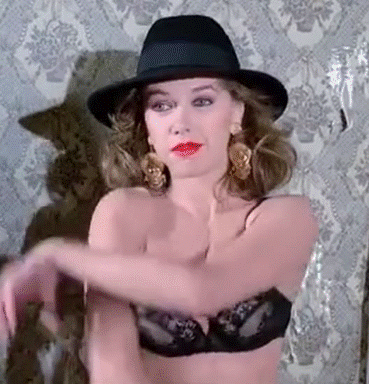#Sabine haudepin
Explore tagged Tumblr posts
Text




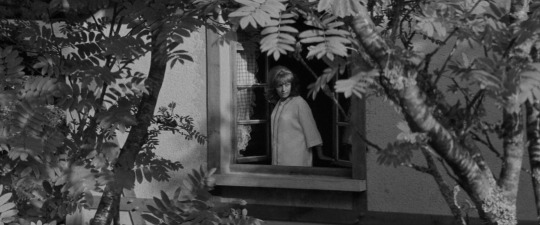
jules et jim (1962)
#jules et jim#film#movie#cinema#art#edit#screencaps#photography#cinematography#60s#françois truffaut#jeanne moreau#sabine haudepin
90 notes
·
View notes
Text





Our Story (Notre histoire) (Our History) (1984) Bertrand Blier
October 27th 2024
#our story#notre histoire#our history#1984#bertrand blier#alain delon#nathalie baye#Sabine Haudepin#Gérard Darmon#Jean-Pierre Darroussin#Michel Galabru#Genevieve Fontanel#Geneviève Fontanel
7 notes
·
View notes
Text
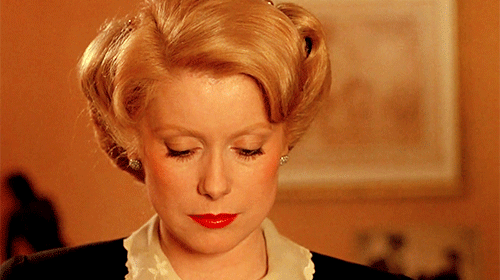
. It takes two to love, as it takes two to hate. And I will keep loving you, in spite of yourself. My heart beats faster when I think of you. Nothing else matters.
The Last Metro (Le dernier métro), François Truffaut (1980)
#François Truffaut#Suzanne Schiffman#Catherine Deneuve#Gérard Depardieu#Jean Poiret#Andréa Ferréol#Paulette Dubost#Jean-Louis Richard#Sabine Haudepin#Maurice Risch#Heinz Bennent#Jean-Pierre Klein#László Szabó#Martine Simonet#Richard Bohringer#Néstor Almendros#Georges Delerue#Martine Barraqué#1980
30 notes
·
View notes
Photo
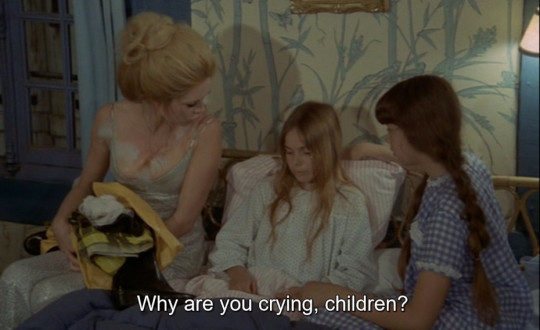
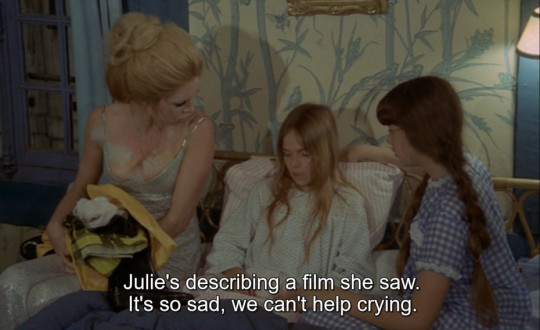
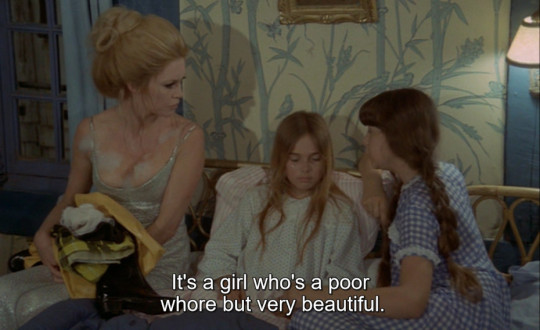
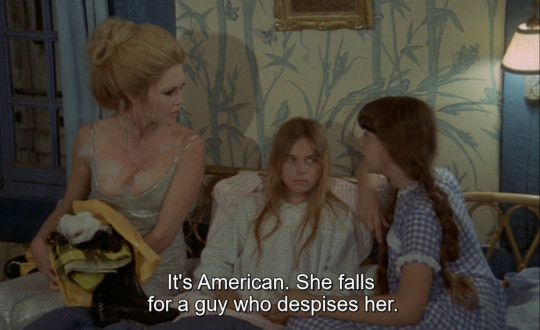
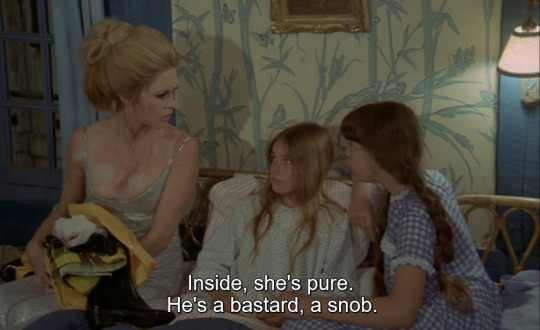
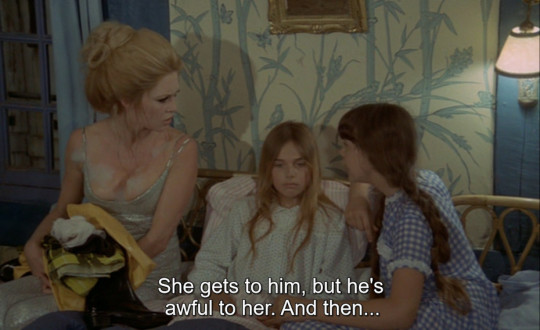
L'ours et la poupée (The Bear and the Doll) | Michel Deville | 1970
Name that film...
Brigitte Bardot, Valérie Stroh, Sabine Haudepin
#Brigitte Bardot#Valérie Stroh#Sabine Haudepin#Michel Deville#L'ours et la poupée#1970#The Bear and the Doll
36 notes
·
View notes
Photo
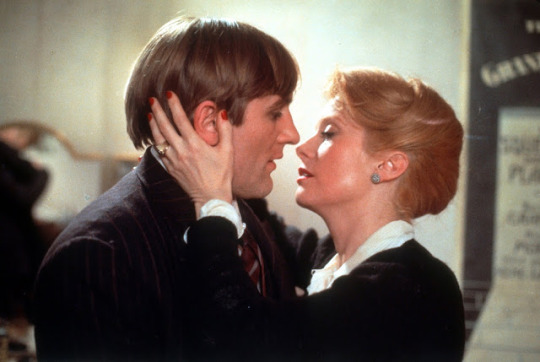
Gérard Depardieu and Catherine Deneuve in The Last Métro (François Truffaut, 1980)
Cast: Catherine Deneuve, Gérard Depardieu, Jean Poiret, Andréa Ferréol, Paulette Dubost, Jean-Louis Richard, Maurice Risch, Sabine Haudepin, Heinz Bennent. Screenplay: François Truffaut, Suzanne Schiffman, Jean-Claude Grumberg. Cinematography: Néstor Almendros. Production design: Jean-Pierre Kohut-Svelko. Film editing: Martine Barraqué. Music: Georges Delerue. François Truffaut said in interviews that The Last Métro is a kind of companion film to Day for Night (1973), his behind-the-camera account of making a movie. Truffaut, who was born in 1932, was only a boy during the war but he recalls the theater -- both the movie theater and the legitimate stage -- as a kind of refuge from hardship, the hunger and cold brought about by wartime rationing. People gathered in theaters for communal warmth. The story is principally about an actress, Marion Steiner (Catherine Deneuve), who is trying to keep the theater that was run before the war by her husband, Lucas (Heinz Bennent), open. Lucas, who is Jewish, is rumored to have fled to America, but in fact he is hiding in the cellar of the theater while Marion, with the help of the rest of the regular company, stages a play. The director, Jean-Loup Cottins (Jean Poiret), is working from the notes Lucas made on the play before his disappearance. Cottins has his own dangerous secret: He's gay, and hence subject to persecution by the occupying Nazis. A new leading man, Bernard Granger (Gérard Depardieu), joins the company, and inevitably a tension develops between him and Marion. Meanwhile, Lucas has figured out ways to listen in on rehearsals and make suggestions to Marion that she passes along to Cottins, who is unaware of Lucas's hiding place. Marion also has the difficulty of dealing with the authorities, who could close the theater at any moment, especially when the influential critic Daxiat (Jean-Louis Richard), a collaborator with the Nazis, takes an interest in her and the play. What takes place on stage, namely the sexual tension between the characters played by Marion and Bernard, often mirrors what's happening backstage. The Last Métro is a well-crafted movie -- Truffaut wrote the screenplay with Suzanne Schiffman -- that was France's entry for the best foreign-film Oscar and won a raft of the French César Awards, including one for cinematographer Nestor Almendros.
3 notes
·
View notes
Photo

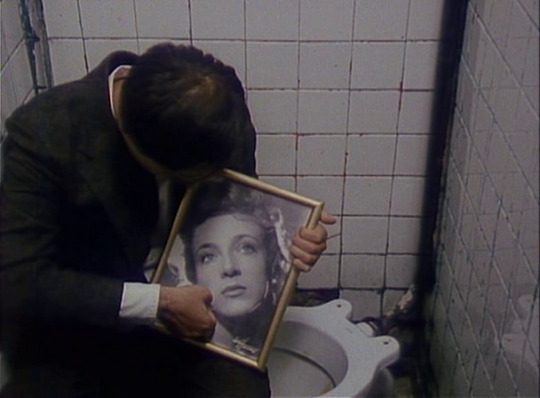
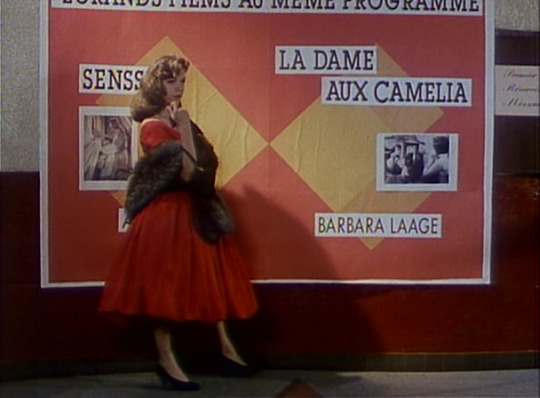
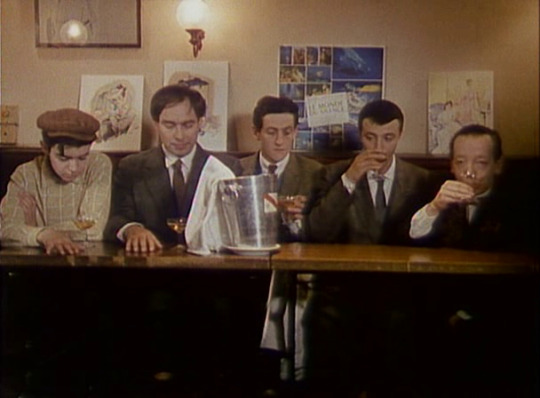
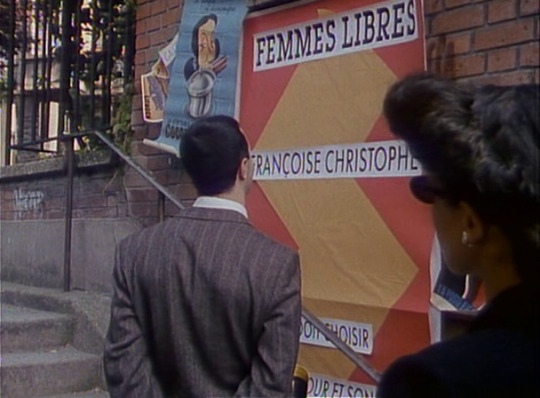
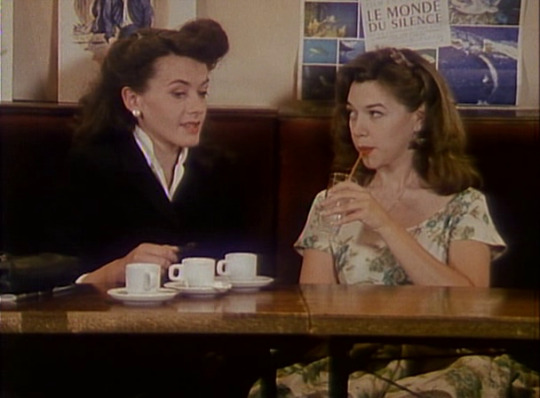

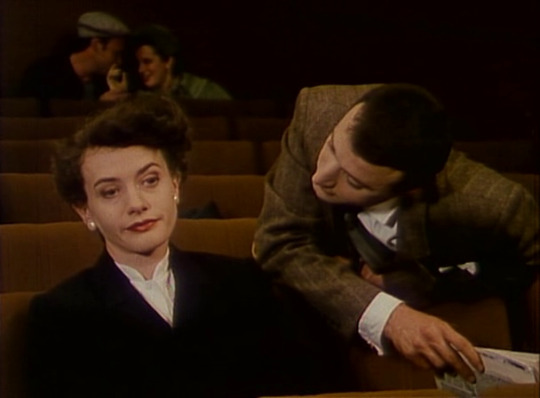

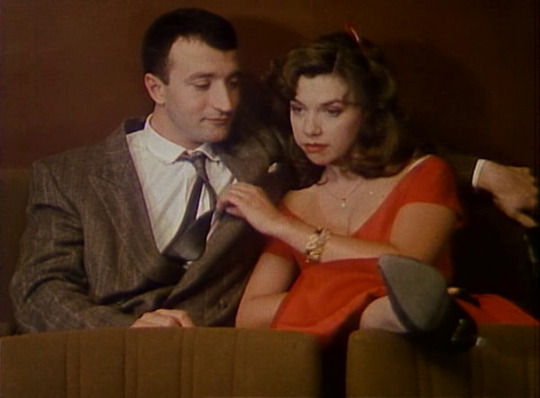
Les Sièges de l’Alcazar (Luc Moullet, 1989)
#films watched in 2022#Les Sièges de l’Alcazar#Luc Moullet#ocho#1989#Olivier Maltinti#Elizabeth Moreau#Sabine Haudepin#comedy#film#cinema#journalism#hands#movie poster#The Seats Of The Alcazar Cinema#back
88 notes
·
View notes
Photo
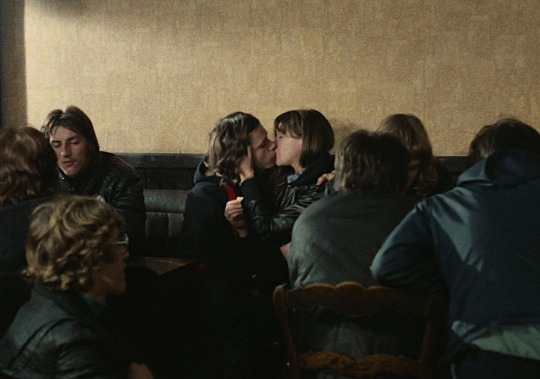
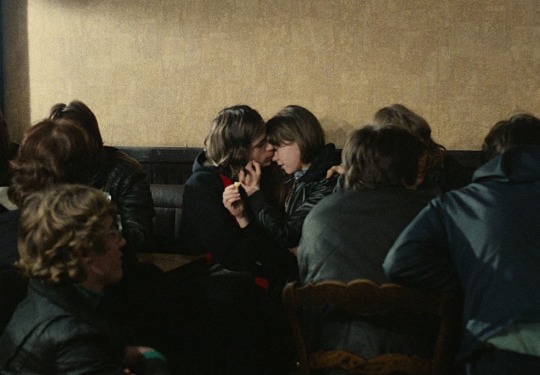
Graduate First (1978) dir. Maurice Pialat
866 notes
·
View notes
Photo
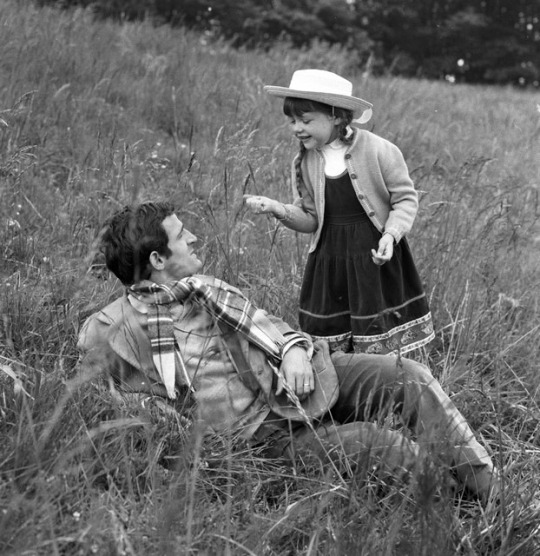
François Truffaut, February 6, 1932 – October 21, 1984.
With Sabine Haudepin during the making of Jules and Jim (1962).
27 notes
·
View notes
Photo
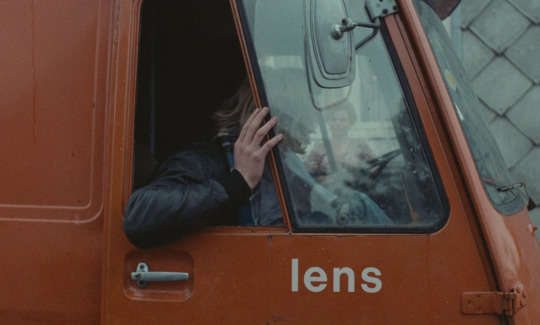
Passe ton bac d’abord… / Un jeune insatisfait émerge d’une serviette éponge dans laquelle est tissé un LOVE ME démesuré.
#Cinéma#Passe ton bac d'abord#Maurice Pialat#Pierre-William Glenn#Jean-Paul Janssen#1978#Sabine Haudepin#Philippe Marlaud#Bernard Tronczyk#Patrick Lepcynski#Valérie Chassigneux#Jean-François Adam#Agnès Makowiak
0 notes
Photo
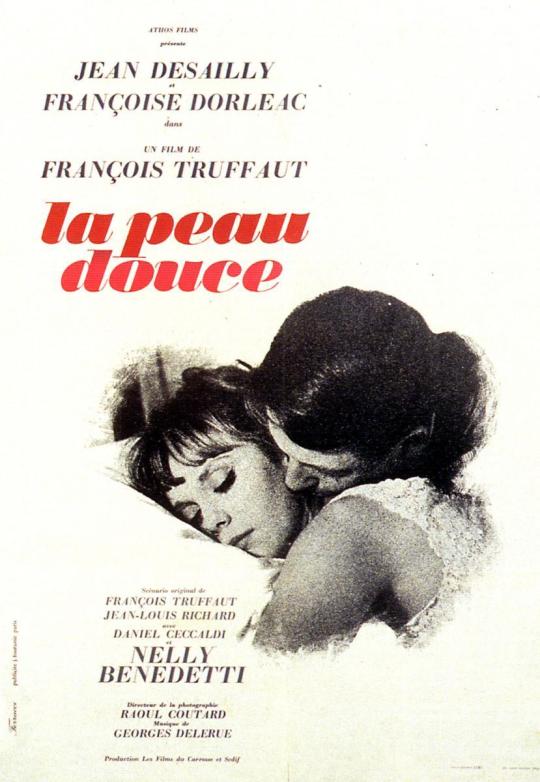
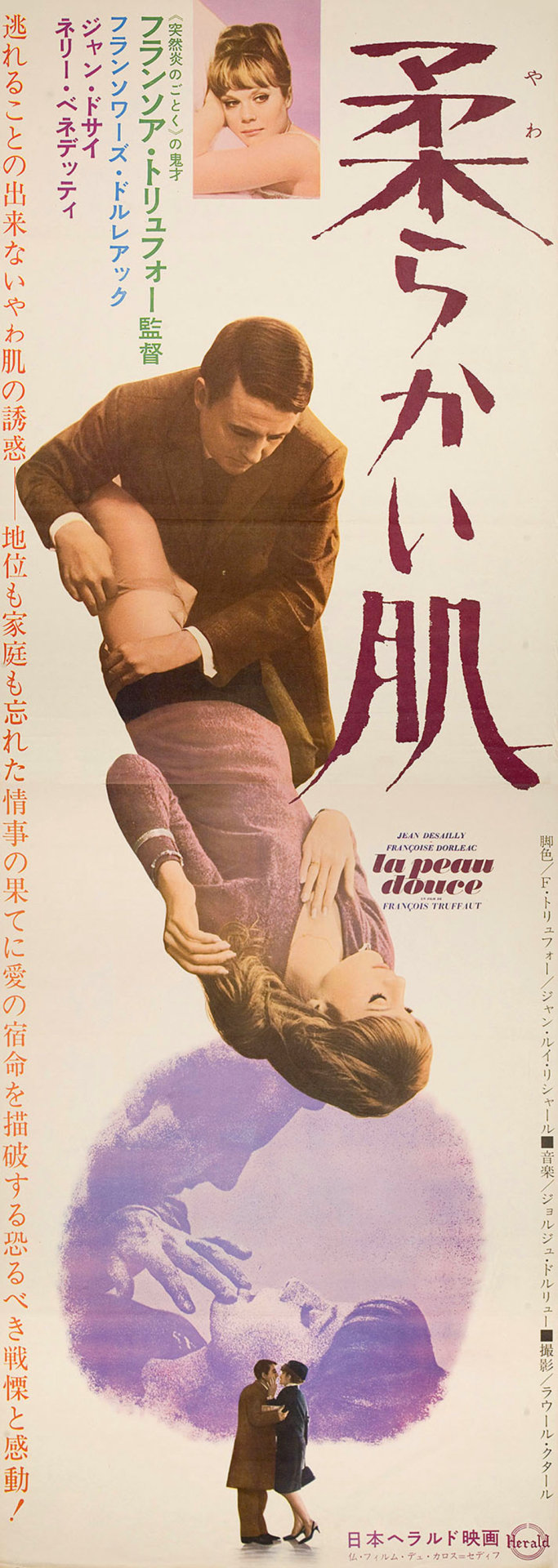
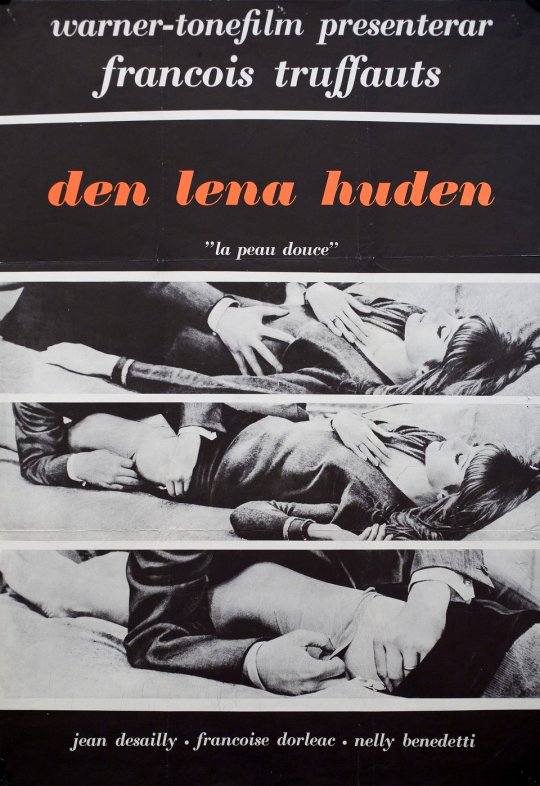
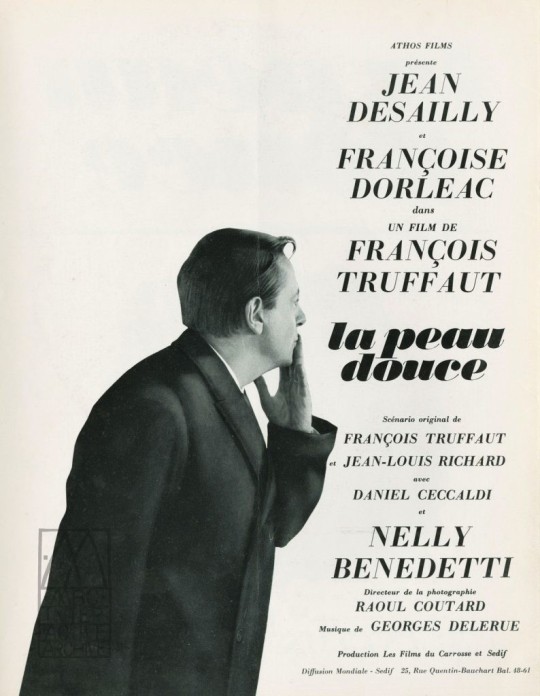
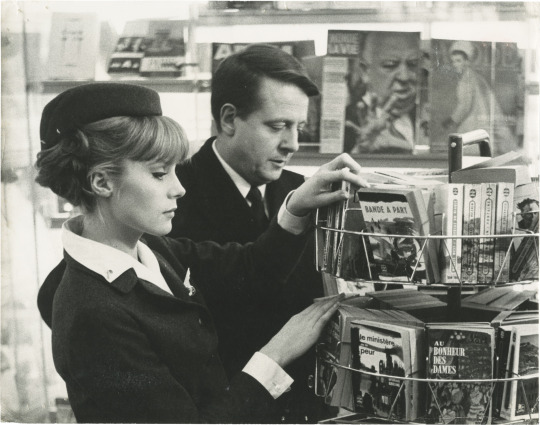
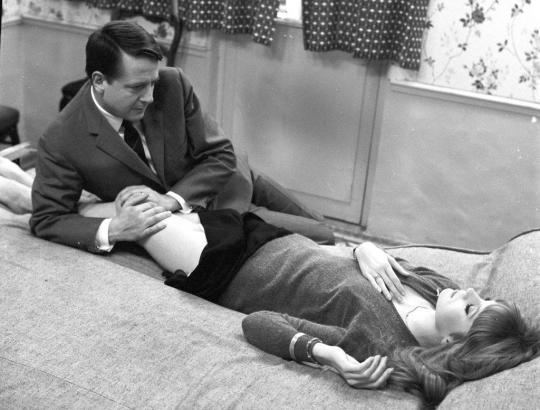
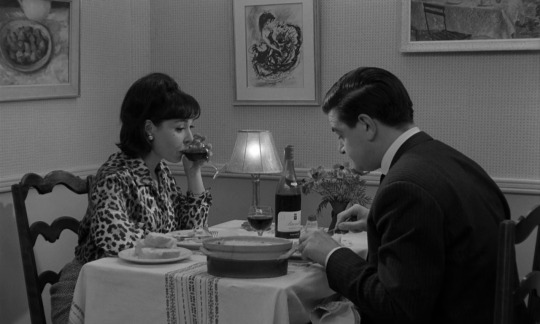
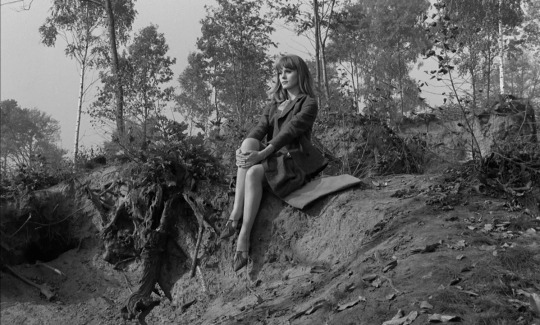
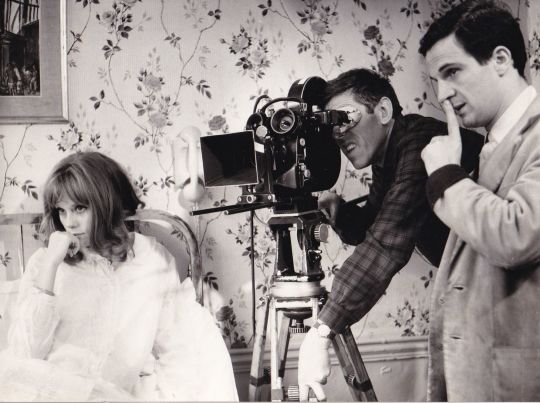
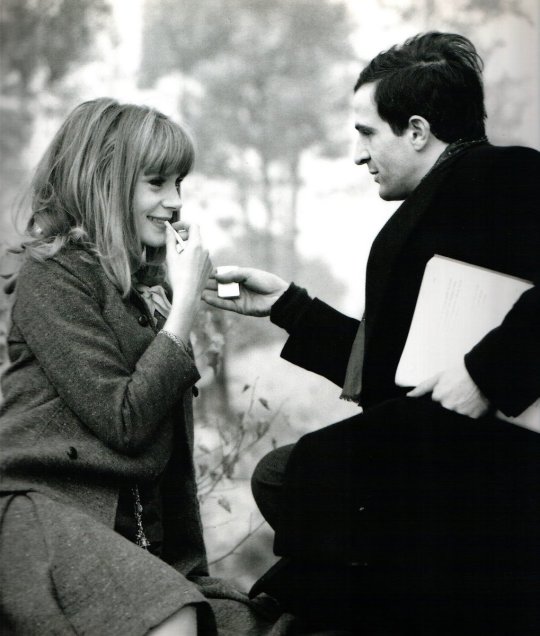
The Soft Skin (La Peau douce) (1964) François Truffaut
September 27th 2022
#the soft skin#la peau douce#1964#francois truffaut#jean desailly#francoise dorleac#nelly benedetti#sabine haudepin#daniel ceccaldi#paule emanuele#jean lanier#silken skin
13 notes
·
View notes
Text
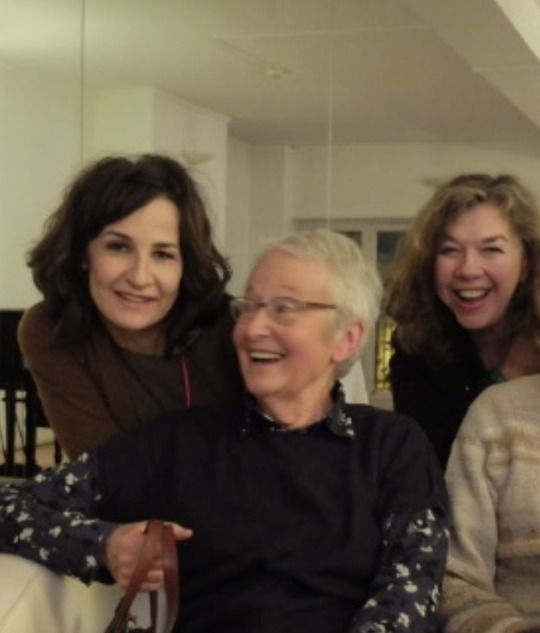
Entre deux représentations du samedi au théâtre du Châtelet… Spectacle co-écrit avec mon Breguet, Sabine Haudepin. Dernière sortie au théâtre de Mère grand
44 notes
·
View notes
Photo

La papesse Jeanne (2017) - mehr auf: https://movienized.de/la-papesse-jeanne-2017/
#Agathe Bonitzer#Grégoire Tachnakian#Jean Breschand#Jean-Emmanuel Pagni#Nans Laborde-Jourdàa#Roman Kané#Sabine Haudepin
0 notes
Text
[Film Review] Max, Mon Amour (1986)
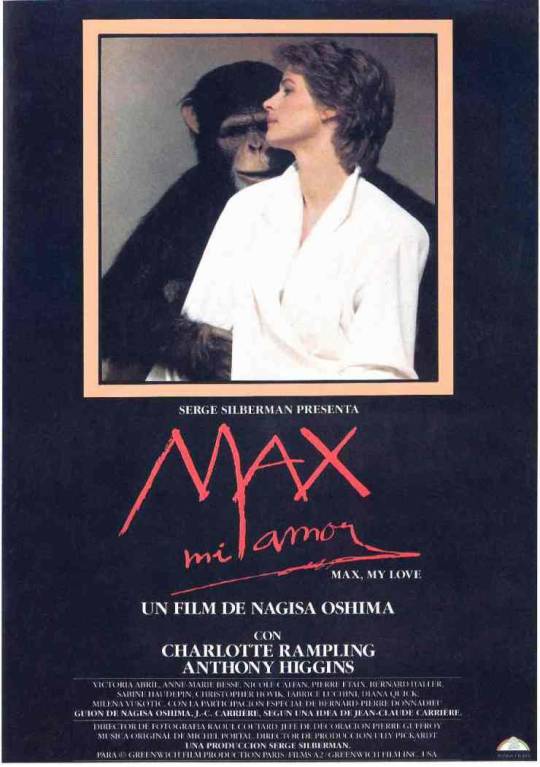
Title: Max, Mon Amour Year: 1986 Country: France, USA Language: French, English Genre: Comedy Director: Nagisa Ôshima Writers: Nagisa Ôshima Jean-Claude Carrière Music: Michel Portal Cinematography: Raoul Coutard Cast: Charlotte Rampling Anthony Higgins Christopher Hovik Diana Quick Victoria Abril Pierre Étaix Nicole Calfan Bernard Haller Milena Vukotic Fabrice Luchini Bernard-Pierre Donnadieu Sa…
View On WordPress
#1986#6.9/10#Anne-Marie Besse#Anthony Higgins#Bernard Haller#Bernard-Pierre Donnadieu#Charlotte Rampling#Christopher Hovik#Claude Jaeger#Diana Quick#Fabrice Luchini#French Film#Jean-Claude Carriere#Laurent Spielvogel#Milena Vukotic#Nagisa Oshima#Nicole Calfan#Pierre Étaix#Sabine Haudepin#Victoria Abril
0 notes
Text

Jeanne Moreau, Henri Serre, and Oskar Werner in Jules and Jim (François Truffaut, 1962)
Cast: Jeanne Moreau, Oskar Werner, Henri Serre, Vanna Urbino, Serge Rezvani, Anny Nelsen, Sabine Haudepin, Marie Dubois, Michel Subor. Screenplay: François Truffaut, Jean Gruault, based on a novel by Henri-Pierre Roché. Cinematography: Raoul Coutard. Production design: Fred Capel. Film editing: Claudine Bouché. Music: Georges Delerue.
Catherine (Jeanne Moreau) is insane, and Jules (Oskar Werner) and Jim (Henri Serre) love each other more than either of them loves Catherine. That's obviously a reductive way of looking at the movies' most famous ménage à trois, but it's my takeaway from the most recent viewing of Truffaut's masterpiece. Why is Catherine insane? one should ask. Because she's a free spirit trapped in a woman's body when freedom for women can be glimpsed but not fully achieved. Note how liberated she becomes when she dresses as a man, smoking a stogie (pace Dr. Freud, but sometimes a cigar is more than just a cigar) and providing a light for a strange man outside of a pissoir. And at no time do Jules and Jim find her more sexually desirable, I think. Naturally, she marries Jules, the more repressed of the two, and finds further liberation by cheating on him rather than falling into the socially respectable roles of wife and mother. As for the "bromance" of Jules and Jim, that too skirts societal disapproval: The narrator tells us that their friendship was much talked about. Even separated by a war that puts them on opposing sides, each worries that he may find himself killing the other. But they survive, only to find Catherine testing their friendship. That it survives the test until Catherine kills one of them is the film's deepest irony. And Catherine is never able to find the freedom she seeks, even after death: Her desire to have her ashes scattered to the winds is thwarted by "the regulations," as the narrator (Michel Subor) tells us. It is, of course, one of the great films, made so by Moreau's tremendous performance, by Georges Delerue's score, and by Raoul Coutard's cinematography, but most of all by Truffaut's direction and (with Jean Gruault) endlessly fascinating script. Even Jules and Catherine's daughter, Sabine, is perfectly presented: Sabine Haudepin is one of the least affected, least annoying child performers ever to appear on screen.
1 note
·
View note
